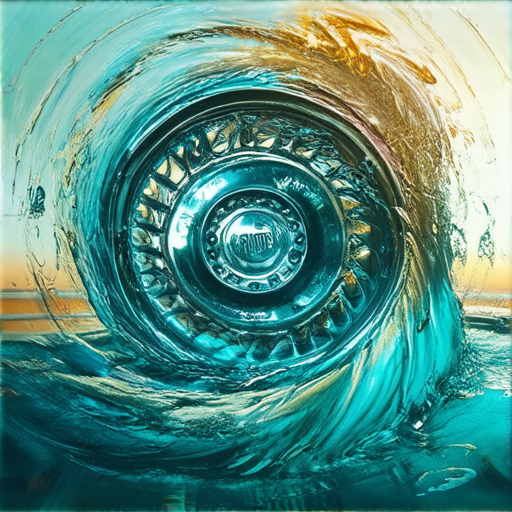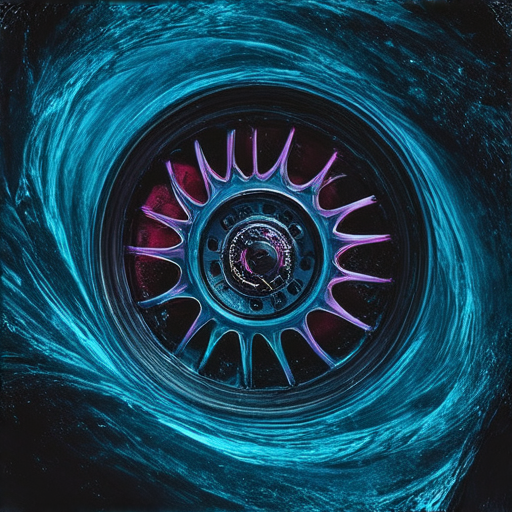When it comes to enhancing the appearance and durability of your vehicle’s wheels, selecting the right wheel coating option can be overwhelming due to numerous choices available in the market today. From ceramic coating to powder coating, each type offers unique benefits and drawbacks that cater to different needs and preferences. In this comprehensive guide, we’ll delve into the world of wheel coatings, exploring the most durable finishes, comparing costs and longevity, and discussing popular options like duplicolor wheel paint and aluminum wheel coating. Whether you’re looking to add style to your ride or protect your investment, our expert advice will help you make an informed decision about choosing the right wheel coating options for your vehicle.

The Most Durable Finish for Rims
Powder-coated wheels remain one of the most popular choices among car enthusiasts due to their exceptional durability and resistance to various forms of damage.
- Chemical Resistance: Powder-coated wheels offer excellent protection against chemical attacks, including those caused by road salt, brake fluid, and other corrosive substances.
- Chipping and Scratching Resistance: The dry-bake powder coating process used for wheel manufacturing creates a hard, scratch-resistant surface that resists minor scratches and chips.
- Fading Resistance: Unlike some other finishes, powder coating does not fade over time, maintaining its original appearance even when exposed to direct sunlight.
One of the primary advantages of powder-coated wheels is the absence of evaporating solvents during the coating process, which eliminates the risk of developing holes in the finish.
Other Durability Options for Rims
In addition to powder coating, several other finishes can provide similar levels of durability for rims:
- Clear Coat Finishing: A clear coat finish applied over a base paint provides a protective layer that shields the rim from minor scratches and chips.
- Chrome Plating: Chrome plating offers a reflective, corrosion-resistant surface that can withstand moderate wear and tear.
- Anodizing: Anodizing involves electrochemically depositing aluminum oxide onto the rim, resulting in a durable, corrosion-resistant finish.
Ultimately, the choice of finish depends on personal preference, budget, and intended use of the vehicle.
Ceramic Coating Your Rims: Worth the Investment?
Ceramic coating your rims can provide numerous benefits, making it a worthwhile investment for car enthusiasts.
- Reduced Maintenance: Ceramic coating creates a hydrophobic barrier that repels water, dirt, and grime, reducing the need for frequent washing and cleaning.
- Improved Protection: The coating protects your rims from corrosion, rust, and damage caused by road debris, salt, and extreme temperatures.
- Easy Cleaning: A ceramic-coated rim can be wiped clean with a microfiber cloth, eliminating the need for harsh chemicals or abrasive materials.
- Increased Resale Value: A well-maintained, ceramic-coated rim can increase your vehicle’s resale value, making it more attractive to potential buyers.
Key Considerations Before Applying Ceramic Coating
Before applying ceramic coating, consider the following factors:
- Rim Material: Not all rim materials are suitable for ceramic coating. Aluminum, steel, and chrome rims can benefit from the coating, while some types of plastic or fiberglass may not be compatible.
- Pre-Cleaning Requirements: Thoroughly clean your rims before applying the coating to ensure optimal adhesion and effectiveness.
- Application Process: Ceramic coating application requires specialized equipment and expertise. Ensure you choose a reputable installer or follow proper DIY instructions.
Common Misconceptions About Ceramic Coating
Some individuals believe that ceramic coating is unnecessary or too expensive. However, the benefits outlined above demonstrate its value and potential cost savings over time.
Cost Comparison
The cost of ceramic coating varies depending on the type, quality, and application process. On average, expect to pay between $200-$500 for a professional installation, depending on the complexity of the job and location.
Conclusion
In conclusion, ceramic coating your rims can provide significant benefits, including reduced maintenance, improved protection, easy cleaning, and increased resale value. By considering the key considerations and common misconceptions, you can make an informed decision about whether ceramic coating is right for your vehicle.

Powder Coating vs Painted Alloy Wheels: Which is Better?
A well-maintained alloy wheel can last for years, but its appearance may degrade due to exposure to road debris, weather conditions, and wear and tear.
Key Differences Between Powder Coating and Painting
- Chipping Resistance: Powder coating offers superior chipping resistance compared to painting, making it ideal for high-traffic vehicles or those exposed to harsh environments.
- Durability: Powder coating provides a harder, more durable finish than painting, which can withstand scratches and abrasions better.
- Heat Resistance: Powder coating shops often take extra precautions to prevent overheating during the application process, reducing the risk of damage to the alloy wheel.
Advantages of Powder Coating Over Painting
- Longer Lifespan: Powder coating can last significantly longer than painting, with some applications lasting up to 10 years or more.
- Improved Appearance: Powder coating produces a smooth, even finish that resists fading and discoloration, maintaining the alloy wheel’s original appearance.
- Environmental Benefits: Powder coating is a more environmentally friendly option than painting, as it uses less volatile organic compounds (VOCs) and produces fewer emissions.
When to Choose Painting Instead of Powder Coating
- Cost-Effective Option: Painting can be a more cost-effective solution for alloy wheels, especially for those with minor cosmetic damage.
- Quick Turnaround Time: Painting typically takes less time to complete than powder coating, allowing for faster turnaround times.
Conclusion
In conclusion, while both powder coating and painting have their advantages and disadvantages, powder coating is generally considered the better option for alloy wheels due to its superior chipping resistance, durability, and heat resistance. However, painting may still be a viable choice for certain situations, such as when cost-effectiveness or quick turnaround time are prioritized.

Wheel Coatings Lifespan: A Comprehensive Guide
The longevity of wheel coatings depends on several factors, including the type of coating, usage, and maintenance habits. Here’s a breakdown of what you need to know:
- Type of Coating: Different types of wheel coatings have varying lifespans. Ceramic coatings typically last between 1 to 3 years, while polymer coatings may last up to 5 years.
- Usage and Environmental Factors: Frequent exposure to road debris, extreme temperatures, and harsh chemicals can significantly reduce the lifespan of wheel coatings. Regular washing and drying can help maintain their integrity.
- Maintenance Routine: Establishing a regular cleaning schedule and using the right cleaning products can help extend the lifespan of wheel coatings. Avoid using household cleaners or abrasive materials that can damage the coating.
- Inspections and Repairs: Regularly inspect your wheels for signs of wear and tear. Addressing minor issues promptly can prevent more extensive repairs down the line.
- Coating Quality and Application: High-quality coatings applied correctly can provide longer-lasting protection. Look for reputable manufacturers and follow proper application instructions.
To maximize the lifespan of your wheel coatings, consider the following tips:
* Wash your wheels regularly with mild soap and water
* Dry your wheels thoroughly after washing to prevent water spots
* Avoid parking under trees or in shaded areas, which can cause brake dust buildup
* Use a wheel cleaner specifically designed for your coating type
* Apply a protective wax or sealant to enhance durability
By understanding the factors that affect wheel coatings and implementing good maintenance habits, you can enjoy a longer-lasting and more durable finish on your wheels.
Ceramic Coating Rims Cost: A Comprehensive Guide
The cost of ceramic coating rims can vary depending on several factors, including the type of vehicle, rim material, size, and application method.
- Factors Affecting Cost:
- Vehicle Type (e.g., sedan, SUV, truck)
- Rim Material (e.g., aluminum, steel, chrome)
- Rim Size (larger rims may require more coating)
- Application Method (e.g., DIY kit vs. professional installation)
Pricing Range for Ceramic Coating Rims
The cost of ceramic coating rims can range from $100 to $500 per set, depending on the above factors.
- DIY Kits:
- $100-$300 for basic kits
- $200-$400 for premium kits
Professional Installation Costs
Professional installation costs can range from $200 to $800 per set, depending on the complexity of the job and location.
- Basic Application:
- $200-$350
- Advanced Application:
- $350-$600
Additional Costs to Consider
In addition to the initial coating cost, consider the following expenses:
- Preparation and Cleaning:
- $50-$150
- Wax and Sealant:
- $20-$50
Tips for Choosing the Right Ceramic Coating Rim Service
To ensure a successful ceramic coating experience, follow these tips:
- Research Local Providers:
- Check reviews and ratings
- Verify Qualifications:
- Look for certifications and licenses

Does Powder Coating Rims Last?
Powder coating is a popular method for protecting and enhancing the appearance of vehicle rims.
- Factors Affecting Durability:
- Material Type: Aluminum, steel, and chrome-plated wheels can benefit from powder coating, but the process may vary depending on the material.
- Environmental Conditions: Exposure to harsh weather conditions, road salt, and extreme temperatures can impact the longevity of the powder coating.
How Long Does Powder Coating Rim Last?
The lifespan of powder-coated rims depends on various factors, including maintenance, usage, and environmental conditions.
- Average Lifespan: With proper care, powder-coated rims can last anywhere from 5 to 10 years, depending on the quality of the coating and the conditions they’re exposed to.
- High-Traffic Areas: In high-traffic areas, such as racing or off-road driving, the powder coating may wear off faster, typically within 2-5 years.
- Maintenance Requirements: Regular washing and waxing can help extend the life of the powder coating, but neglecting these tasks can lead to premature wear.
Signs of Wear and Tear:
Identifying signs of wear and tear early on can help you determine if your powder-coated rims need replacement or repair.
- Fading and Chipping: Faded or chipped paint can indicate wear and tear, especially around the edges and corners.
- Peeling and Flaking: Peeling or flaking paint can signal that the powder coating is deteriorating.
- Corrosion and Rust: Corrosion and rust can compromise the structural integrity of the wheel, making it essential to address these issues promptly.
Preventing Damage and Extending Lifespan:
By following these tips, you can help prevent damage and extend the lifespan of your powder-coated rims:
- Regular Cleaning: Regularly wash your vehicle to remove dirt, grime, and road salt.
- Waxing and Polishing: Apply a coat of wax or polish to protect the powder coating and maintain its appearance.
- Avoid Harsh Chemicals: Avoid exposing your vehicle to harsh chemicals, which can damage the powder coating.

0 Comments